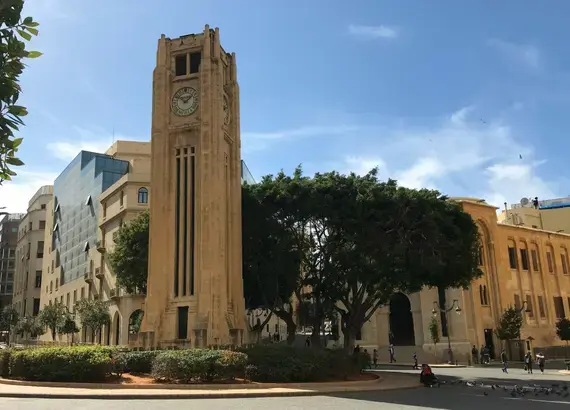
Nejmeh Square in Beirut, Lebanon (photo credit: Maya Fawaz)
Success Story
Voters Welcome Fresh Faces and Ideas to Tackle Lebanon’s Challenges In Upcoming Parliamentary Elections
As Lebanon approaches twice-postponed parliamentary elections, Lebanese voters who participated in NDI survey research completed in January 2018 signaled modest optimism and support for new candidates and approaches to address the country’s long-standing challenges. This optimism is tempered, however, by concerns about lack of economic development and endemic corruption, both of which are hindering modernization of infrastructure and basic services ranging from health care to waste management.
Thirty-five percent of respondents in the NDI poll believe Lebanon is heading in the right direction – a 20 point improvement from the Institute’s last poll in April 2017. There is a clear indication that recent political successes – including the adoption of a new election law, resiliency of Lebanese politicians in the face of regional pressures and continued strong performance of the army and other security forces - are contributing to growing optimism.
In contrast, government performance is considered poor and judged harshly on economic terms, with job creation, tax increases and rising prices topping respondents’ concerns. Fifty-eight percent of respondents also consider corruption to have worsened under the current government.
Parliamentary elections slated for May 2018 are highly anticipated. Seventy-five percent of respondents indicate their intention to vote, with first-time voters (aged 21-29) making up a strong portion of that motivated group. Elections are viewed as an important milestone to renew Lebanon’s fragmented democracy and register appetite for change. Respondents generally support the reforms adopted in the new election law, although uneven understanding of these reforms suggests a strong need for election authorities and civil society groups to conduct robust voter education campaigns. Respondents note enthusiasm for seeing independent candidates running in upcoming elections, as well as for the opportunity to see all candidates debate their policy proposals.
With only four women represented in the current parliament, Lebanon has one of the lowest rates of female representation in national elected office of any parliament in the world today. Eighty-two percent of respondents view political parties as the main barrier to women’s participation in politics. Seventy-five percent of respondents believe that there are qualified women to run for office and that if more women held elected office there would be less corruption, signaling that voters are prepared to vote for candidates who represent new approaches to addressing priority concerns.
NDI polling in Lebanon is supported by the UK Government’s Foreign Commonwealth Office (FCO).



